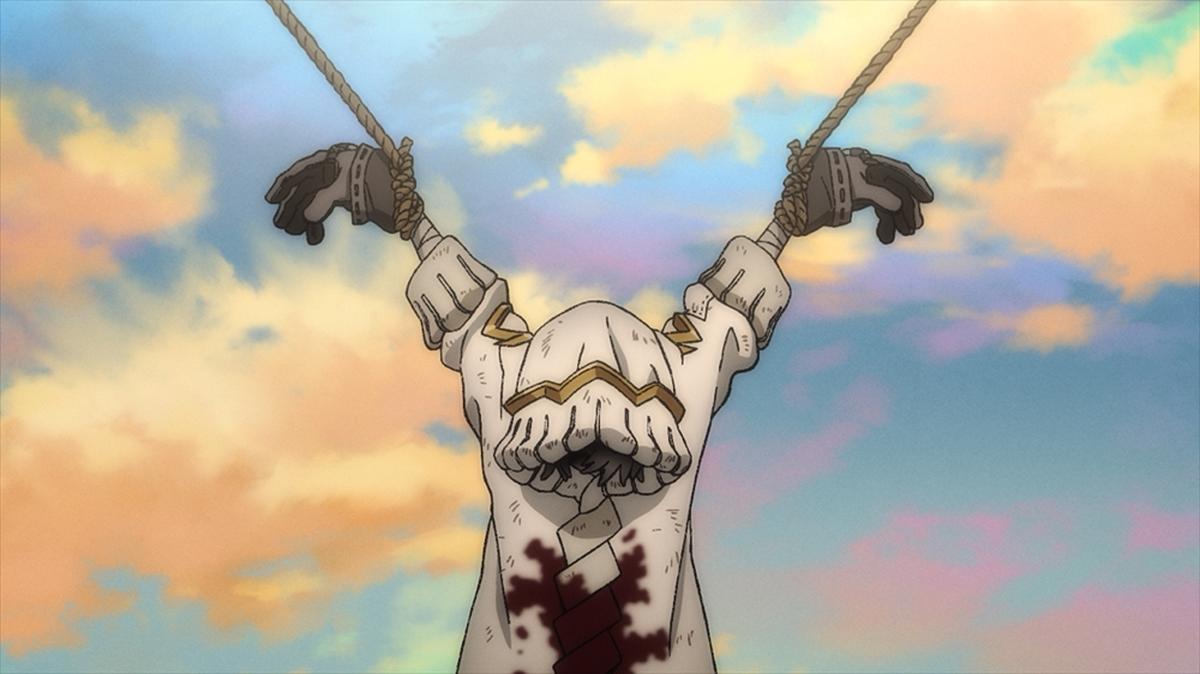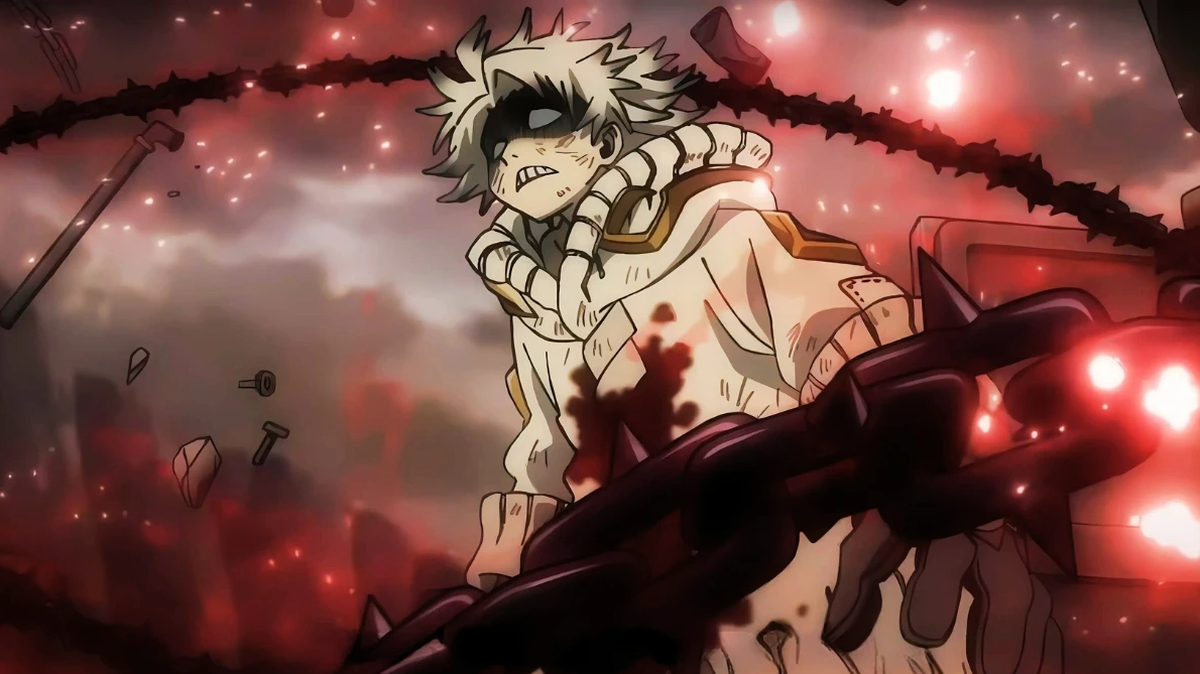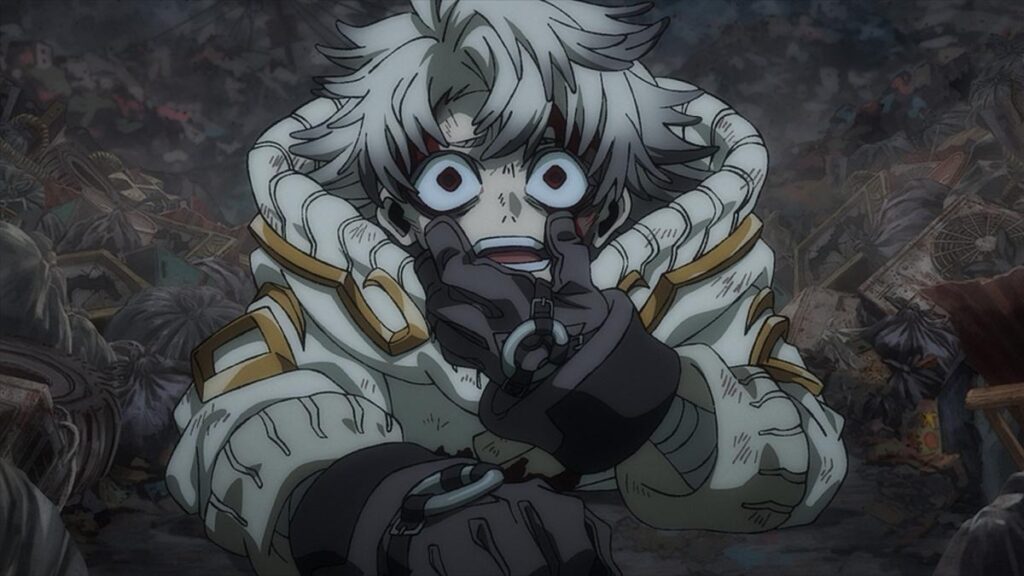In time GachiakutaThe white hairstyle has been thrown into its spontaneous underworld, dumped like garbage. He always lived in the pile of garbage, socially, leisurely and spiritually, and the zero of the pit was only the logical end of other life, cultural rot in the costume as doubt, doubt and law and order. The story of the Japanese Mangaka Kei Urana can be built on the garbage mountain, but the main thing is about the class. When society looks right, a tough line draws a rigid line, and rather it happens that it does not exist.
The root of the slums, Rudo, is the heirs of the ancestral shame and the descent of the people. These “tribes” have come from the criminals who have been excluded in the zone of lasting contamination. When something or a person is no longer sitting in the story of purity and progress, they are thrown into the pit.
Like Bong-Jun-Ho ParasiticWhere a weak but inevitable “smell of the poor” becomes the sensory sign of the class that hurts the rich, Gachiakuta Waste and dirt use waste and dirt because of inconvenience to the illusion of society’s hygiene. In both, the idea of ”purity” becomes weapons, and the poor turn into a strange thing, hide, are expelled, or when they go against the moral cleaning of powerful moral cleaning.
This diastopia gives the figure of a collision. In the historical mechanism of imperialism, colonies were first marked by their usefulness and then by their rejection. Once the national ownership was removed and transformed into social issues, it became a disconnect. Like the systematic dehumanization of the state of Israeli, the Palestine people have been reduced due to security risks, obstacles or collaterals. Gachiakuta It is described in the world where the Salworner is deprived of personality, re -classified as garbage, and his disposability is created in the order of order.

From ‘Gachikuta’ still | Photo Credit: Crucherol
When Rudola is prepared for the murder, there is no lawsuit to mention. His skin is dirty, his hands are spots and his history is known. Is automatically called by the offender. The slum child. The son of a murderer. Inevitable repeated criminals. In this type of pre -made criminal, tribal children are echoing the real world in the long world history, which is the name of Dalits who have been punished for crimes against them. Not enough to be poor or the “wrong” side of the city is not enough – you have to suspect violence, danger and original corruption.
Gachiakuta Rudo does not leave for rot, but he literally and ornately – handles it with the power that has been discarded. Totamic weapons of the story, important tools, or “jinky” are everyday items in memory, sorrow and spirit. This restoration from the waste to the waste from the waste flips the colonial lens on its head.

Here, Gachiakuta Gives the inhuman recognition back. There are things to restore reputation in the castoff, live life in the body of colonialism, to live a breathing life – the empire is always afraid of. Rudo’s power as a “giving” is a smart oncological statement. He becomes an anti -colonial craftsman, makes weapons, and the meaning of rejection.
The visual language of the story enhances the policy. Graffiti-induced design and crispy texture come together in the type of resistance that are not clean, or noble or photographic, but are made of dirty and frustrated and accessories.

From ‘Gachikuta’ still | Photo Credit: Crucherol
Anim has smuggled sharp class commentary in his storyline for a long time. In Attack TitanThe Aldian people have been changed into embankment, humiliating and weapons. In Fulmetal che chemist: fraternityThe people were buried under the myths of ethnic purification, their culture, and under the myths of national unity. PlutoRecruit Astro boy Arches, who gets to decide what is counted as human, wrestling Cyberpank: Azerner Shows a city that sucks the poor and sells their rebellion back to them.
The main stress in Gachiakuta Is between visibility and erase. People who can forget to forget and those who are only remembered as a precautionary story. What a story suggests at the end of the story is a proposal to dispose of a “criminal,” “good,” or “garbage”. But the response is not required. Rudo does not want to accept the goal. He is not looking for forgiveness. He wants something confused and more honest with something like revenge and recovery.

In this intense sight Gachiakuta This seems to be especially emergency at the time that the resistance of repression as terrorism, disruption or distortion is being repeated. It is remembered that every empire is trying to bury: the garbage dump never forgets.
Gachiakuta’s premiere is on July 6 with new parts on Krancharoll on July 6. The first two part of the series was made available for the author for review.






